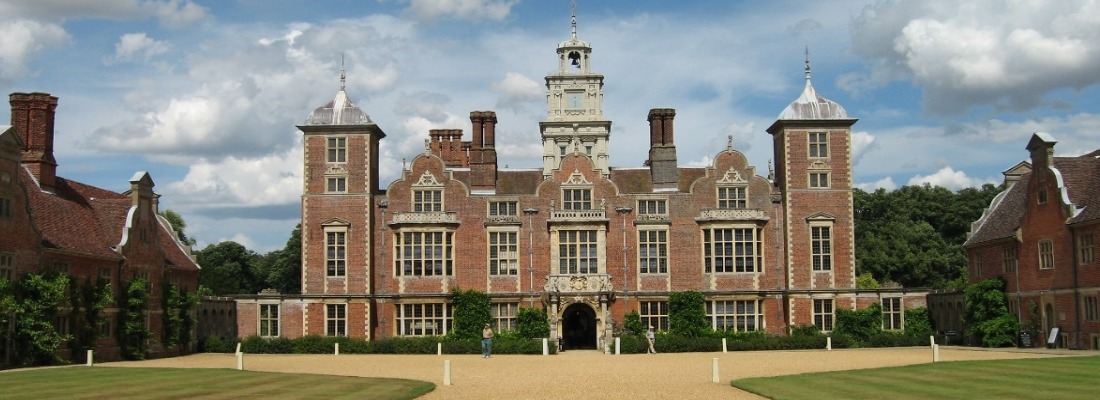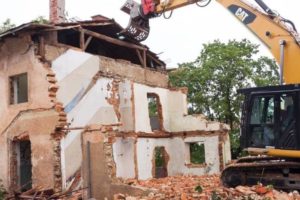Buying a house, whether it’s your first house or you’re getting a larger home to support your growing family, is a significant step. Too often, I’ve met clients who bought a new house without really thinking about it.
It’s important to remember, if you buy correctly, a house could be one of the best investments you will ever make. On a personal note, I bought my house in 2001 for just over £200,000. I chose well, and over the last 18 years, have developed the house both inside and out. While I still have a mortgage, it’s less than £150,000, and the property is valued at over £700,000.
Here are 10 things to consider before you buy a house.
Property Cost
Over the years we’ve met hundreds of clients who are struggling to pay the mortgage on their new house. Yes, the mortgage company allowed them to take the money, but this doesn’t mean they should’ve taken it. Generally, it’s a good idea to limit your mortgage repayments to no more than 30% of your income.
The biggest problem I see with clients taking a mortgage to finance their property purchase is that they only think of the mortgage repayments and forget everything else. Remember, each month you need to pay gas, electricity, council tax, sky TV, repairs and most importantly if you think the furniture that you so cleverly bought for your current house is going to fit into your new home, think again.
Furniture Allowance
Very rarely do people give more than a second glance to any form of furniture allowance, and this is where often you get into trouble.
You’ve taken the maximum the mortgage company will allow. You’ve moved into your new house, and the kitchen table doesn’t fit, neither does the sofa, and you need a few more beds for all the space that you now have. Where is this money coming from? Often, it’s credit cards or some form of an interest-free loan, that never gets paid and adds to your high-interest debt.
Additional Cost’s
No one ever thinks about the additional cost’s when it comes to buying a house. Below is a comprehensive list of things you need to think about before purchasing a home.
- Life Insurance – You’ll need life insurance, this means that if you die, your partner will be able to pay the mortgage off completely.
- Mortgage Arrangement Fee – If you’re taking a mortgage, expect to pay an arrangement fee of around £2,000. Make sure you read the small print; some mortgage companies will charge you the arrangement fee even if you do not complete on the purchase.
- Valuation Fee – If your offer has been accepted, your mortgage lender will do a “valuation check” on the property. This is a confirmation that it’s worth what you’re paying for it. This is not free and is likely to cost you around £600.
- Property Survey – Similar to a valuation fee above, once your offer has been accepted, you’ll want to confirm the property is in as good a condition as you think it is. Again, surveys are not cheap and will cost you around £800. One point, make sure you budget for a few surveys. If the survey turns out to be terrible, meaning the property has a selection of problems, you may want to pull out of the property.
- Legal Fees – Once the surveys are completed and the sale agreed by all parties, you’ll need to hire a solicitor to handle the legal aspects of buying a property, known as conveyancing. Lawyers are not cheap and will likely charge you a flat fee of £1,500 or more depending on the value of the property.
- Stamp Duty – Buy a property for more than £125,000, and you’ll have to pay stamp duty land tax on its purchase price. It’s a variable scale, with the following percentages. As a consequence, if you’re buying a £500,000 property, you would pay £15,000 in stamp duty alone.
- £0-£125,000 0%
- £125,001-£250k 2%
- £250,001-£925k 5%
- £925,001-£1.5m 10%
- £1.5m+ 12%
- Removal costs – Unless your planning on packing and unpacking your belongings yourself, you’ll need to hire a removal company. For a two-bedroom home, this can easily be over £1,000.
School Locations Matter
Do you have a local school? Is it close by? Whether you have children or not, where the local school and more importantly, how good it is, should be at the top of your priority list when choosing a new home.
As with every parent, we want our children to go to the best school possible and therefore get the best education. Typically, public schools will limit their entrance to those that live locally. If you can find a great family house, with room for improvement that is close to a good school, this will add serious value to your property, when you come to sell it.
20% Down Payment Is a Myth In The Uk
You need to make sure you’re shopping around for the best mortgage rate. Too often, we meet with clients that have simply approached their bank when the time comes to finance their property.
This is fine as they will typically give you a competitive rate, but often you can do much better with a little time spent online, reviewing mortgage rates. Remember, 0.25% different on a £100,000 mortgage over ten years, equals £2,500. I’m sure you could do with an extra £2,500.
One further point to consider, just because the special offer of 1.5% below the base for the first two years looks attractive, doesn’t mean it’s a great deal. Often you find the first two years is a great deal, and then the price substantially increases with limited options to try and move your mortgage elsewhere.
Property Survey
Once your offer has been agreed with the seller, the first step is to get a property survey completed to tell you the condition of the property and more importantly, what repairs you need to make.
The property survey needs to be carried out by a qualified surveyor. The report will show you any areas of structural instability such as unstable walls or subsidence and help you to decide if there are any major repairs or alterations needed such as fixing the roof or chimney chute and expert commentary on the property, from the type of wall to the type of windows. Once the report is complete, you may need to return to the seller and renegotiate the price to compensate for any repairs that are required.
Major Turn Off’s
The family house is where you’re going to be spending the majority of your time over the next few years. You’re going to be raising your children and possibly staying in the same place for the rest of your life.
It’s a significant step, and you want it to be perfect. As a result, property buyers need to be aware of external factors that will alter property value. As a rule, you need to be aware of the following “property turn-off’s” that will affect your property value, now or in the future.
- What’s the surrounding area like? Are there any big commercial development being planned? A major industrial site being built right next to your family home, will not increase its value.
- Flight paths are nosey and mean that it’s difficult to use the outside of your property. Sitting outside trying to have dinner is very difficult if a plane goes over the top of you every two-minutes.
- Crime Rates – You need to focus on areas with low crime rates.
Three Key Problems To Look Out For
If you’re not worried about any of the problems above, make sure you’re new property does not have either of these three problems. They are all serious and can cause serious problems.
- Asbestos – Pre-1977, asbestos was a major building material, however more recently its been banned due to being linked with cancer. Asbestos is normally found in old floor tiles, ceiling tiles, roof shingles, and in insulation (around boilers, ducts, pipes, sheeting, fireplaces). If your home was built pre-1977, you need to check for asbestos. Given it’s a hazardous substance, having it removed is both expensive and time-consuming.
- Mould – this is another problem that can seriously affect your health. Mould typically grows in places where there is excess moisture, such as around leaks in roofs, windows, or pipes. If your home has mould, firstly it’s a sign that there is a leak which in the case of a broken pipe, could be expensive to repair. More importantly, it could cause you a selection of health problems from nasal stuffiness and throat irritation to severe coughing or wheezing.
- Japanese Knot Weed – is often described as “indisputably the UK’s most aggressive, destructive and invasive plant” for a good reason. It’s very difficult to kill even if you get professional help, while all the time it’s growing, it’s destroying your property. Japanese knotweed has been to blame for many walls and underground drain problems over the years which are all expensive and time-consuming to fix.
Buy Smart
Studies show that it costs upwards of £8,885.66 to move to a new house and that’s before you take into account stamp-duty or the cost of new furniture. Considering the cost to move to a new home, you need to make sure you’re moving to a new house for the right reason.
There is no point in moving from your one-bedroom flat, into a two-bedroom flat, just because you have your first child, if you’re planning a second and will be wanting a three bedroom in the future. Given the cost to buy and sell, you’d be better off staying where you are, saving and buying that three-bedroom flat once you have the available funds.
Property Development
On the same line of thinking as above, try to buy smart and think about possible property developments you could do in the future. Buying a property, especially as a family home that you plan on keeping for the foreseeable future is all about where you can develop it.
As an example, adding a 30m2 loft conversation will cost between £20,000-25,000 by the time you’ve added insulation, the staircase, skylights to provide light and electrics for lighting, and heating. However, studies show that you can increase your property value by 21 per cent across the UK and in London, it’s likely to be even higher, at 24.5 per cent.








